Hospitals are filling up at a terrifying pace, with more Covid-19 cases now than ever. A new variant is sweeping through the capital and the country, with more than a million of us currently infected. Nicola Sturgeon, the Scottish First Minister, says she is more worried now than she has been at any point in the pandemic. Matt Hancock, the Health Secretary, puts it differently. ‘I am optimistic,’ he says. ‘We’ve got the light at the end of the tunnel and it’s getting brighter. Of course, we’ve got a difficult time between now and then but the vaccine is going to get us out of it.’ We are, he says, ‘going to have a great summer’.
Hancock sees the war against coronavirus as being in its final stages, a metaphor made all the more real by the presence of the military. Dozens of soldiers from 101 Logistic Brigade are now working with government officials to help roll out the vaccine. It will, he believes, have a huge impact in a relatively short space of time. He offers an example. ‘About half of the deaths occur in people aged over 80,’ he says. ‘But a quarter of the population aged over 80 have already had their first dose. That’s a wonderful statistic, because that means that a quarter of the people who are most likely to die have already been vaccinated.’
It takes two to three weeks for protection to begin from the first shot, he says. ‘Once that time has elapsed, we will have already — on those numbers — reduced the amount of deaths by about an eighth. And we’ve done that within the first month of the vaccination programme.’ Hence his optimism: ‘That is the route out — to see the breaking of the link between cases and the hospitalisations and deaths that have, until now, followed with ruthless inevitability.’
Optimism has certainly characterised the government’s approach to Covid-19, with mixed results. The Prime Minister has spoken hopefully about avoiding school closures and lockdowns, about the potential for mass testing, about the ‘world-beating’ test-and-trace system. Critics say his optimism has led to disappointment, dismay and a lack of public trust, with the Department of Health sinking billions on failed experiments. Hancock sees it differently. ‘The case for the defence of the Health Department during 2020 is that we backed a lot of horses,’ he says. ‘The majority of them came home. Some of them had hiccups along the way. But ultimately the right thing to do was not to worry about the political and reputational risk of not all these things working.’ It’s important, he says, to overcome fear of failure. ‘In the public sector, all too often, the attitude is, if we don’t know it is going to work for sure, we shouldn’t do it because it might not work — and wouldn’t that be embarrassing?’ It’s a risk he’s prepared to run.
This risk-taking approach explains the proliferation of goals: 100,000 Covid-19 tests a day (later rising to 500,000). And now to vaccinate more than 13 million people by the middle of next month, with 23 million soon afterwards. These are huge targets. Hancock calls this a ‘big hairy audacious goal’, which he abbreviates to ‘BHAG’ (‘You set a big goal and you use that to galvanise the system to make it happen’). But he is confident that it can be achieved: ‘I know we can get the supply — now it’s about making it happen.’ Later he states with almost evangelical zeal: ‘We will get to the target; we are going to hit the target.’
On present figures, it’s a stretch. The first month of vaccination has covered just over a million people — far off the two million jabs a week needed to reach the target. But Hancock says the past is no guide to the future: ‘People who currently look at our weekly run rate and then cast that forward by 42 days are obviously making a mistake,’ he says. ‘Each day we’re adding more vaccination centres. So it’s like building more houses in Monopoly, you get more and more sources of income in Monopoly.’
It’s not yet clear what counts as a win in the game of Vaccine Monopoly. Hancock rules out eradication. ‘It is impossible for any country to deliver a zero-Covid strategy. No country in the world has delivered that, including the ones that have aimed at it,’ he says. ‘Covid is going to be here, but it is going to be a manageable risk.’ His focus is on fatalities and, he says, abolishing restrictions as soon as it is feasible.
When Covid hospital cases fall and pressure on the NHS is lifted, he says, ‘That is the point at which we can look to lift the restrictions.’ So what about herd immunity, vaccinating so many people that the virus dies out? ‘The goal is not to ensure that we vaccinate the whole population before that point, it is to vaccinate those who are vulnerable. Then that’s the moment at which we can carefully start to lift the restrictions.’ But at that point the majority would remain unprotected. Would he — as Health Secretary — still say it’s time to abolish the restrictions? ‘Cry freedom,’ he replies.
Freedom, we say, is not a word that many would associate with him. People associate him with lockdown. ‘No,’ he replies, ‘they associate me with the vaccine.’ Do they really? ‘Yes.’ Even when the rules go, Hancock thinks that some changes to behaviour will remain. ‘The social norm may well become wearing a mask on public transport, for instance, in the same way that after Sars the social norm in many Asian countries became to wear masks in public. Essentially out of politeness.’ But he stresses that these decisions will be a matter of ‘personal responsibility’, not government diktat. Nor does he see immunisation certificates being brought in. ‘It’s not an area that we’re looking at.’
The obvious threat to all this is the risk of a new Covid-19 strain that has mutated to a point where the vaccines won’t work. But Hancock seems confident that they would be able to update and approve the vaccine quickly: ‘Think of it like a car. A Range Rover where you change the wing mirror but it is still a Range Rover. So a vaccine where you change the target protein a small amount is still the same vaccine.’ It happens all the time with flu, he says. ‘We have 40 years of experience in making these annual adjustments according to the new variants.’
In the first lockdown, care homes were particularly badly hit. Are they protected now? His upbeat tone vanishes. ‘It’s a huge challenge,’ he says. Ministers have ‘worked very closely with the care sector to do as much as we possibly can’. But he warns that, ‘It’s difficult because staff live in the community. Inevitably, when there is community spread, that includes people who live in care homes catching it.’ Care home residents (and staff) are, in theory, first in the vaccine queue: there are about a million of them, and a million vaccines have already been issued. But it sounds as if he is still braced for bad news.
His biggest regret of the pandemic? The crudeness of the first lockdown, he says, had many unintended consequences: for example, banning people from attending funerals. ‘It was John Sentamu who raised with me that people who had been married for 50 years were not going to their husband’s or their wife’s funeral — and that’s awful. So we changed it.’ Hancock says he has taken this as a lesson that ‘you have got to stay human’. Which is why the current lockdown has more caveats. ‘In the regulations I signed this afternoon, there is a longer list of exemptions because of the things we’ve learned.’
The moment he most looks forward to? ‘When I have the duty to declare that the Coronavirus Act is no longer required, upon medical advice. That will be a great moment: when we repeal these draconian laws.’ He says he’s mindful of the side effects: people dying who would otherwise have been treated by the NHS. The economic devastation and business closures. But without lockdown, he says, both the Covid deaths and the side effects would be far greater. ‘I think that’s one of the things we’ve learned all the way through this. The public have totally got that: I mean, they are more strongly supportive of lockdown now than they were at the start.’
Politically, he feels events have justified the decisions he made. ‘I hope that one of the consequences of this crisis is that it emboldens politicians to do the right thing even if it isn’t the immediately popular thing. Because that is what earns you respect.’ One wonders if this logic will be applied to social care — a problem Boris Johnson, on the steps of Downing Street when he first became PM, promised to fix, but which very little has actually been done about.
He’s optimistic about the lessons the pandemic has taught the NHS — mainly in digitisation — and about its galvanisation of the life-sciences industry. ‘We have demonstrated we have the best regulator in the world, without doubt. Now we are outside of the European Union, we have the opportunity to innovate.’ He thinks biotech companies will be lured here by the prospect of ‘a brilliant experience with the regulator’, which is less bureaucratic and able to move at speed.
Hancock would not deny that his optimism has sometimes got the better of him. It was down to him that the UK tried to develop its own contact-tracing app rather than working off the Apple/Google one. But it’s wrong, he says, to think of failed projects as wasted money. ‘Remember, every day that we shorten a lockdown by saves the country billions of pounds. You’ve got to think about the economics of managing a pandemic. To think: what are the resources of the nation? How do we marshal them best to get through this?’
After all those false dawns, he sees us as being almost at the end of this struggle. ‘I’m an optimist by nature. I see the world getting better — and I still believe that. Even after having lived through 2020 as Health Secretary.’
Got something to add? Join the discussion and comment below.
Get 10 issues for just $10
Subscribe to The Spectator Australia today for the next 10 magazine issues, plus full online access, for just $10.
You might disagree with half of it, but you’ll enjoy reading all of it. Try your first month for free, then just $2 a week for the remainder of your first year.

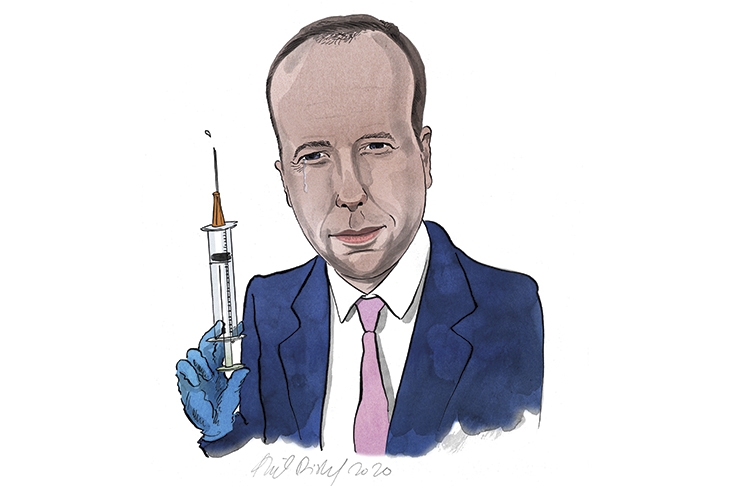
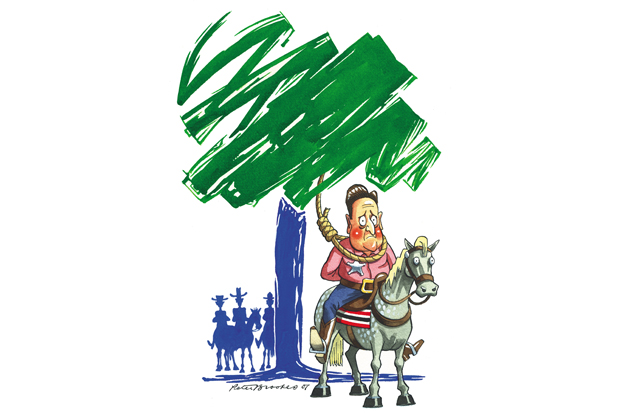
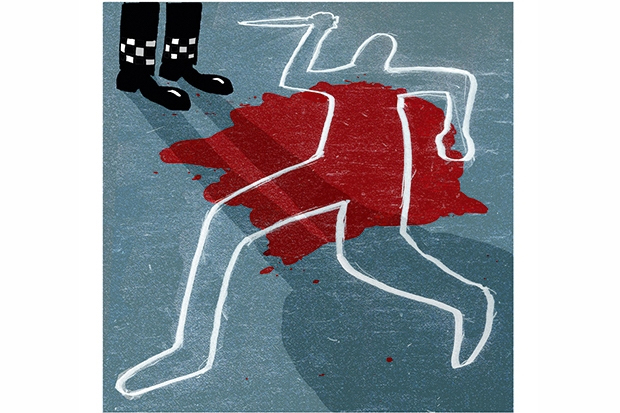
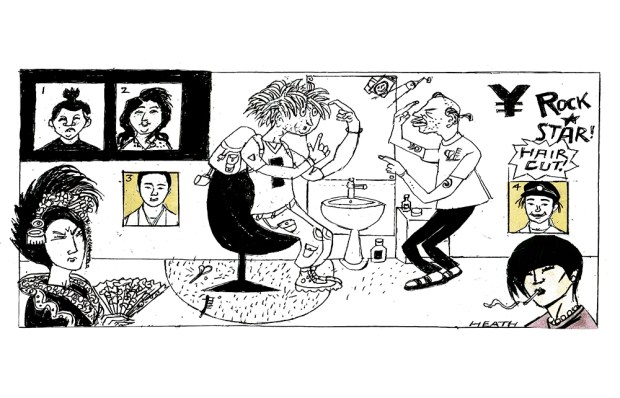
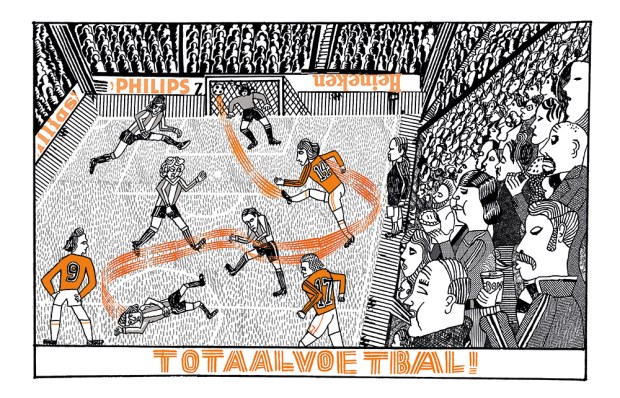
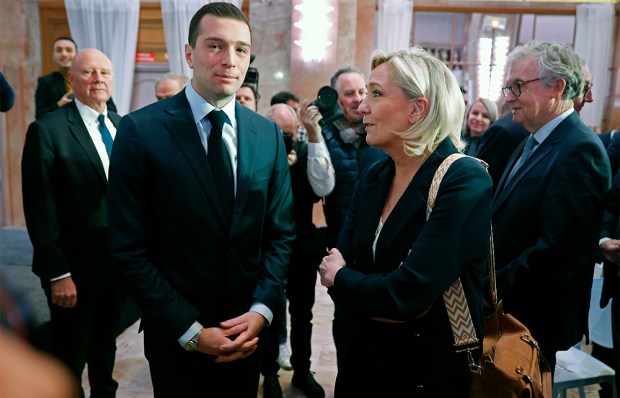
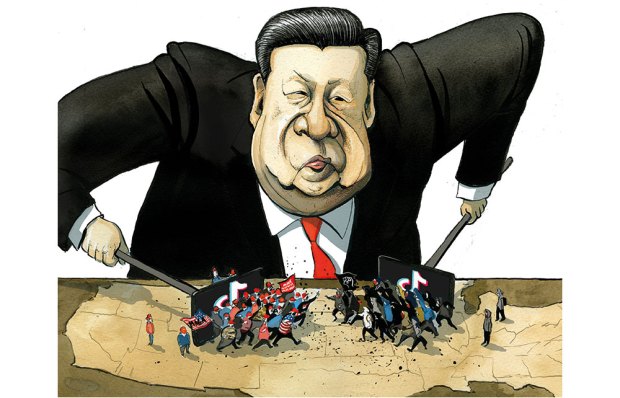






Comments
Don't miss out
Join the conversation with other Spectator Australia readers. Subscribe to leave a comment.
SUBSCRIBEAlready a subscriber? Log in